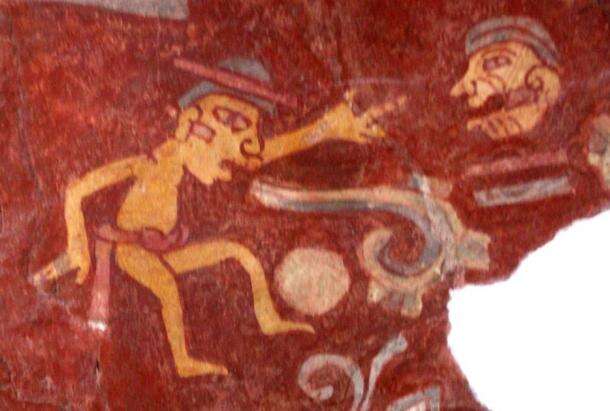Theory Beyond Fukuyama-ism: The Implications of Kant’s Writings on Theory and Practice for Contemporary Anti-Capitalist Resistance

In Perpetual Peace (1795), Kant sets out to defend the power of theory in achieving the end of perpetual peace in an increasingly anti-intellectual age. But, in this essay, I examine how his text also acts as a warning that the perception of theory and practice as antithetical, and especially the hierarchization of practice over theory, has disastrous implications for humanity, limiting our ability not only to resist capitalism, but even to imagine alternatives to it. I further consider how Kant’s text can be useful for both understanding and overcoming the Fukuyama-ism, or the widespread cultural resignation to global capitalism, that pervades our current practices, and how this task rests on toppling the dangerous opposition between theory and practice. If we wish to create an alternative future beyond capitalism, it is of the utmost importance that today we heed Kant’s call to destroy the notion that theory and practice can ever be set against one another.
I will begin by defining ‘Fukuyama-ism’ in the context of this essay. In 1989, with the Soviet Union on the brink of collapse, American political theorist Francis Fukuyama declared that capitalist liberal democracy marked ‘the end of history,’ the final form of cultural and social organization for all humanity. I define ‘Fukuyama-ism’ as the belief that no viable alternatives exist to the unchallenged hegemony of global capitalism. In his book Capitalist Realism, British cultural theorist Mark Fisher argues: “Fukuyama’s thesis that history has climaxed with liberal capitalism may have been widely derided, but it is accepted, even assumed, at the level of the cultural unconscious” (9). Capitalism is no longer merely an economic system, but an omnipresent backdrop of social and cultural thought. I argue that this unconscious cultural acceptance of Fukuyama-ism goes hand-in-hand with an environment which limits anti-capitalist resistance to the realm of practice. Such strategies are often employed by ‘progressives’ who seek to change the world and capitalism for the better but are unwilling to challenge global capitalist systems; an unwillingness which both originates from and perpetuates Fukuyama-ism.
Kant starts his essay with a line that shows the relationship of theory and practice when set against one another. He writes: “the practical politician tends to look disdainfully upon the political theorist as a mere academic, whose impractical ideas present no danger to the state” (67). He conveys that proponents of practice look down on theory as impractical, because theory engages with morality as an idea with no effect on the ‘real’ world, and thereby cannot influence power (or as Kant presents it, “the state”). Certainly, Kant takes great issue with the notion that theory can never have practical implications, but he also argues that practice’s dismissal of theory in this manner also creates disastrous consequences for the project of pursuing perpetual peace. Kant writes: “Now the practical person, for whom morality is mere theory, actually bases his miserable refutation of our well-intentioned hope on the following claim: that he can predict on the basis of human nature that no one will want to do what must be done in order to bring about the end that leads to perpetual peace, even while he concedes that it can and ought to be done” (95). Kant suggests that a chief concern about perceiving practice as superior to theory is that it negates the goal of perpetual peace, while still professing it as its end: this “practical person” effectively resigns humanity to a state of wretchedness. Proponents of practice may deride the theorist as being incapable of moving towards perpetual peace, but it is actually the “practical person” who implicitly argues that the goal they claim to strive towards is inherently unachievable and thus defeats the goal of perpetual peace in the name of practicality. While the theorist is often derided for preferring to form perpetual peace in the abstract rather than work towards its realization, it is actually not the theorist who abandons the people to a state of violence on earth. It is rather the practical person who abandons humanity to this violence by arguing that on the “basis of human nature,” perpetual peace is nothing more than an unrealizable abstraction of the theorist. This kind of practicality is indeed miserable: the “practical person” does not authoritatively declare that humanity may not have perpetual peace, but rather calls it foolish even to pursue it because such a dream is not practical. This constitutes a perverse kind of ideological bondage, restricting not only the movement and organization of people towards perpetual peace, but functionally dismissing and policing even the dream of it.
The “miserable practicality” of which Kant writes is observable today in justifications of capitalism. Capitalism no longer needs to assert any ability to produce perpetual peace; rather, it is justified by the argument that everything else has failed. It seems that the more capitalism is in crisis, the more it sustains itself. For example, the bailout of the banks in response to the 2008 financial crisis clearly demonstrates a “miserable practicality.” The financial failure should have been a disaster for banks and a major wake-up call for the world about the fundamentally destructive tendencies within capitalism. Instead, the banks received a bailout. The implication is that we cannot even imagine a world without this banking system, that even through its failures, the banking system must be sustained. As a result, Fukuyama-ism is only further engrained within the collective consciousness, and the ability of capitalism to outlive the disasters it creates is a constant reminder that there exists no viable alternative. Any imagination of an alternative future beyond capitalism is dismissed as irrational and impractical; thus, the more disasters created by capitalism, the more it presents itself as the only possibility for humans on earth. Further, alternative imaginations to capitalism, such as socialism or communism, are consistently dismissed on the “basis of human nature,” that such politics sound great ‘in theory,’ if only humans weren’t inherently selfish and competitive, as if capitalism were somehow built into our DNA. If “no one will want to do what must be done in order to bring about the end that leads to perpetual peace” (Kant 95), we are told, then we must be realists: it is impractical and rather foolish to theorize about alternative realities. This miserable resignation to practicality is woven into Fukuyama-ism, limiting not only our actions but our very ability to imagine our own emancipation.
The assertion that we must revoke theory in order to be ‘practical’ not only assumes a state of wretchedness to which we are destined, but it also produces an environment which lets the powerful and self-interested reign free. Kant writes: “moralizing politicians seek to gloss over unlawful principles of the state with the excuse that human nature is incapable of good in the way that the idea of reason dictates it, and the only effect that they have is to make progress impossible and to perpetuate the violation of right” (97). Here we see the consequence of the “miserable refutation” from above. If the excuse that human nature is incapable of something like perpetual peace is accepted, we foster an environment which makes “progress impossible and perpetuate(s) the violation of right.” For Kant, the presupposition of the incompatibility between human nature and perpetual peace, and its corollary that the best we can do is to somehow engage in a “practical” politics, actually implies a kind of support to those powers which would oppose perpetual peace. Kant elaborates about these “politically prudent men’”, stating that “it is not their business to argue about legislation itself, but rather only to carry out the current laws of the land” (97). Those who claim to be acting with prudency do not perceive it as “their business” to consider why the world is the way it is or how systems and “legislations” might create or justify suffering. Their pursuit of perpetual peace is confined to the reality within this legislation. If indeed these principles of the state are unlawful, then, by operating within them, and setting them as the bounds to what can be achieved on earth, political realists necessarily naturalize the powerful, inadvertently lending them support by attempting to only challenge them through systems and “legislation” which are constructed to their benefit. Kant unmasks these political realists: they are the deluded idealists, not the theorists. It is the political realist who is deceived into the belief that morality can be pursued and worked towards without challenging intrinsically immoral systems and “legislation.” The only effect of this belief is the “perpetuation of the violation of right”—even as the realist claims that their goal is the elimination of such violations.
This “miserable practicality” functions today in organizations which promote effective altruism, or charities which define themselves as ‘impartial.’ Impartiality is often stated as a founding principle of these organizations, acting as a doctrine of practicality which attempts to save as many lives as possible. Many of these organizations are able to execute extraordinarily productive humanitarian work. However, I argue that their aversion to engaging in theoretical and political critiques (seen in a firm commitment to ‘impartiality’) severely limits their ability to eliminate the cataclysms they have set out to address. Global poverty, famine, environmental degradation and destruction of animal habitats, mental illness, suicide, addiction, and many other earthly horrors, can all be traced back to the violence of global capitalism. Rather than address and confront the systems which perpetuate such disasters, these organizations, in their doctrinal commitment to practicality, allow these horrors to continue to take place, while seeking only to clean-up the damage. The ‘impartial’ charity proclaims: “there is so much disaster in the world, so we don’t have time to think: let’s act!” Impartiality results in a dangerous kind of anti-intellectualism, which cannot produce perpetual peace, but acts only as a cease-fire, a temporary relief from violence and casualties. I argue that the practical doctrines of such organizations represent both a symptom and the perpetuation of the pervasiveness of Fukuyama-ism at the level of the political and cultural unconscious. It assumes that there can be no alternative to capitalism (so launching pedantic theoretical critiques of it is presented as useless), while simultaneously solidifying Fukuyama-ism by naturalizing poverty and environmental catastrophe, and therefore the actions of those who perpetuate these kinds of violence. For Kant, it is not just that “miserable practicality” is ineffective at fostering morality in the world, but that it actively “perpetuates the violation of right,” letting the consolidation of Capitalist power go unchallenged while cleaning up the collateral damage.
Kant also addresses the question of where the prioritization of practice, and the denigration of theory, originates, writing: “There can be (…) no dispute between theory and practice unless one were to regard morality as a universal doctrine of prudence, (…) that is, to deny that morality exists at all” (94). By the very opposition of theory and practice, theory is naturally set as inferior to “prudence,” or practicality, which as shown above, destroys even the imagination of perpetual peace. Although this doctrine presents practice as the only mechanism which can pursue morality on earth (since by construction, this doctrine says that theory, being opposed to practicality, cannot be concerned with anything ‘real’), it in fact defeats its goal simply by implying that morality, or a moral existence, does not “exist at all.” Kant, in defense of perpetual peace, sets out not only to justify theory as in some way effective towards this end, but further to destroy the presupposition that practice and theory can be in any way antithetical, and the conclusion that theory can never have an effect on the real world.
Beyond establishing the dangers of posing practice and theory as antithetical, Kant also expresses the difficulty of understanding how theory can ever be integrated into practice. “If, on the basis of ‘‘enlightened’’ concepts of political prudence, the true honor of the state is thought to lie in the continual expansion of its power by any means whatsoever, then [a theoretical] judgment will surely seem academic and pedantic” (68). Although at first glance, this may read like a critique of power, Kant is actually articulating a concern with theory. It seems as if the powerful can dismiss the critiques of theory as “academic and pedantic,” and that theory lacks any mechanism through which it can convince the powerful to listen, as if they are speaking different languages. Kant writes: “Great powers are never embarrassed by how the common masses might judge them, only by how other great powers might judge them” (99). If the powerful will only respond to other acts of power, it seems that we are left only with practice, a “doctrine of prudence,” which has the capacity to improve the world, even if it cannot produce perpetual peace.
As Kant raises these concerns throughout the text, it is clear that he must have been greatly troubled by the notion that theory cannot affect power. He defends the ability of theory to affect change through some sarcastic and implied moves rather than clearly and definitively debunking this concern. Kant writes: “It is therefore astonishing that the word right has not yet been able to be fully banished from war politics as pedantic. (…) This homage paid by every state to the concept of right (at least through their words), demonstrates, however, that there is an even greater, although presently latent, moral predisposition to be found in the human being, to eventually overcome the evil principle within himself” (79). Kant’s “astonishment” here is certainly sarcastic: he is pointing out how ridiculous the claim is that political realists and the powerful have been able to somehow separate themselves from theory. In fact, they still use various theories to justify the pursuit of self-interest. While the notion that there is some moral predisposition in humans which lies “latent” may be questionable, there is of course an unarticulated theoretical predisposition in realpolitik and political prudence, some underlying theory or ideology on which they rely. What practices are there which are not based on a kind of theory? And can there ever be a theory which has no effect on anyone’s practices? Kant points out that even those who claim to revoke theory, supposedly acting solely on the basis of self-interest, still rely on “latent” moral justifications.
Further, returning to Kant’s opening passage, he writes: “since the practical politician tends to look disdainfully upon the political theorist as a mere academic, whose impractical ideas present no danger to the state […], and who may show his hand without the worldly statesman needing to pay it any heed; then, in case of a conflict with the theorist, the statesman should deal with him consistently and refrain from any allegations of perceived threat to the state in whatever views that the theorist might dare set forth and publicly express” (67) Although on the surface it seems that Kant is conceding the notion that the theorist’s “impractical ideas present no danger to the state,” he is actually pointing out the ridiculousness of this notion. Theory has always faced a threat from power; a concentrated effort to discount its conclusions and delegitimize its very existence. The existence and pervasiveness of anti-intellectualism is a legitimization of theory, a demonstration of its potential to challenge the operations of power. Kant, in this winking move, turns the threat of anti-intellectualism to his own advantage to defend theory. Here is proof that theory can have a profound effect on power, one that shakes it to its bones such that it perceives theory as a threat that it must desperately deal with.
Today, in the face of widespread cultural resignation to Fukuyama-ism, Kant’s defense of the power of theory in working towards perpetual peace has renewed relevance. Kant demonstrates how certain forms of practice can create a miserable doctrine of prudence; but it is important to remember it is not simply “practice” that Kant is worried about, but rather the very opposition of theory and practice as antithetical. The notion that theory and practice are mutually exclusive is at the root of the ideological stagnation we see today in imaginations of anti-capitalism. This is a dangerous form of anti-intellectualism which Kant shows to be tied up in the belief that human nature is incompatible with perpetual peace while simultaneously perpetuating the self-interested violation of right. Overcoming the challenge posed by Fukuyama is today of the utmost importance to theorists and philosophers, and one of the most powerful steps we can take in this direction is to dispel the notion, as Kant attempts to do, that theory and practice can ever be separated. Today, it feels as if our resistance to capitalism is limited solely to practices: by recycling, buying fair-trade, installing solar panels on our houses, donating to charities a few times a year, biking to work, and a plethora of other propositions, we are told that we are making a difference. And yet, year after year, it seems that capital continuously strengthens its hold over our political imaginations. As preposterous wealth inequality grows, the climate emergency becomes ever more urgent, and mental illness rates skyrocket, we must ask ourselves: for how much longer can we afford to remain committed to a “doctrine of prudence” before the possibility of a post-capitalist world disappears altogether?
Works Cited
Fisher, Mark (2009). Capitalist realism: Is there no alternative? Zero Books
Kant, Immanuel (2006). Toward perpetual peace and other writings on politics, peace, and history. Edited by Pauline Kleingeld, Translated by David L. Colclasure. New Haven: Yale University Press.
Read more at By Zachary Gan.
Cultural Pedagogy, Essays, ResistanceRelated News
News Listing

By Maya Phillips ➚
Failure to Reeducate: Perpetuations of Cultural Fascism in Post-War Germany
Articles, Cultural Pedagogy, Public Pedagogy
February 9, 2026

By Rosemary Kasiobi Nwadike ➚
Feminist Miseducation in the Afro-West: Examining (In)Formal Gender Indoctrinations
Articles, Education, Resistance, Social Justice
July 11, 2025

